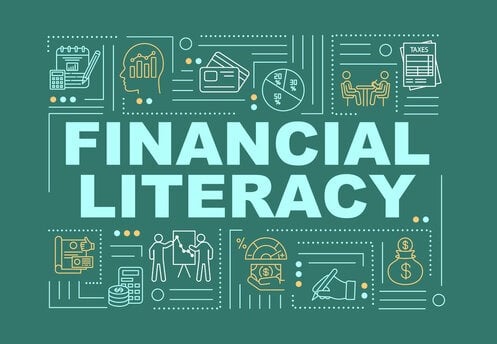The Importance of Financial Literacy in the Digital Age
Explore the significance of financial literacy in the digital age. Learn how technology has transformed finance, key areas to focus on for financial health, and practical tips for using digital tools. Enhance your financial knowledge and navigate modern finance with confidence.
Rehaan Mundy
6/5/20242 min read


Financial literacy is more important than ever in today's digital world. With the rise of online banking, fintech apps, and cryptocurrencies, knowing how to manage your finances is crucial. This post will explain the basics of financial literacy, how technology has changed finance, key areas to focus on, and the importance of financial education.
The Digital Transformation of Finance
Technology has changed how we handle money. Online banking, mobile payment apps, and digital investment platforms make managing finances easier. Cryptocurrencies like Bitcoin are also becoming popular.
Benefits of Digital Finance
Accessibility: Financial services are available to more people, even in remote areas.
Convenience: You can manage your money from anywhere with an internet connection.
Innovation: New financial products and services provide more options for consumers.
Challenges of Digital Finance
Security Risks: Cybercrime and data breaches are serious concerns.
Complexity: There are many digital financial tools, which can be overwhelming.
Key Areas of Financial Literacy
To manage your finances well, focus on these key areas:
Budgeting and Saving
Creating and following a budget is essential for financial health. Apps like Mint and YNAB (You Need A Budget) can help you track your spending, set savings goals, and manage your finances.
Tips for Effective Saving:
Set specific, achievable savings goals.
Automate your savings to ensure consistency.
Monitor your spending and adjust your budget as needed.
Investing
Investing is a great way to grow your wealth. Understanding the basics of stocks, bonds, and mutual funds is important. Digital platforms and robo-advisors like Betterment and Robinhood make investing accessible to everyone.
Introduction to Digital Investment Platforms:
Robo-Advisors: Automated services that create and manage a diversified portfolio for you.
Stock Trading Apps: Platforms that let you buy and sell stocks easily, often with low or no fees.
Credit and Debt Management
Maintaining a good credit score and managing debt are crucial for financial health. Tools like Credit Karma and Mint can help you track your credit score and manage debt repayment plans.
Strategies for Managing Debt:
Pay off high-interest debt first.
Consider debt consolidation for easier management.
Create a repayment plan and stick to it.
Digital Security
Protecting your financial information online is critical. Cybersecurity measures can prevent fraud and identity theft.
Tips for Safe Online Financial Transactions:
Use strong, unique passwords for your accounts.
Enable two-factor authentication (2FA).
Regularly monitor your accounts for suspicious activity.
Real-Life Applications
Many people have improved their financial health using digital tools. For example, Sarah, a recent college graduate, used a budgeting app to save for a down payment on her first home. John, a small business owner, used digital investment platforms to grow his retirement savings.
Popular Apps and Platforms:
Mint: For budgeting and expense tracking.
Robinhood: For user-friendly stock trading.
Credit Karma: For credit score monitoring and financial advice.
Betterment: For automated investing with personalized portfolios.
The Role of Education
Teaching financial literacy in schools is essential to prepare students for the future. Schools should teach practical skills like budgeting, investing, and credit management. Additionally, organizations like DevFintech offer courses and resources to help individuals learn about fintech and personal finance.
Resources for Self-Education:
Khan Academy: Offers free courses on personal finance.
Investopedia: Provides comprehensive financial education.
Financial Blogs: Sites like NerdWallet and The Simple Dollar offer valuable advice and tips.
DevFintech: Offers $60 courses on fintech to help individuals improve their financial literacy.
Conclusion
Financial literacy is a crucial skill in the digital age. By focusing on budgeting, investing, credit management, and digital security, you can make informed financial decisions and achieve stability. Take steps to improve your financial knowledge and embrace the opportunities that digital finance offers. Happy learning!
Updates
Stay informed with live economics and finance news updates.
Me
Blogs
rehaansmundy@gmail.com
(408)-242-2203
© 2024. All rights reserved.
